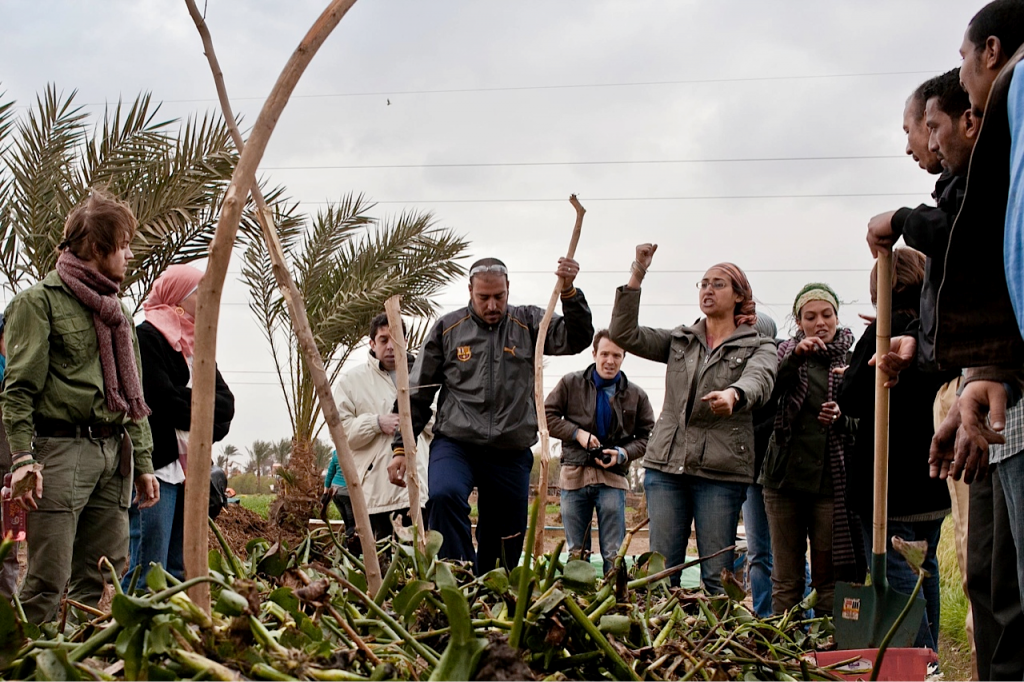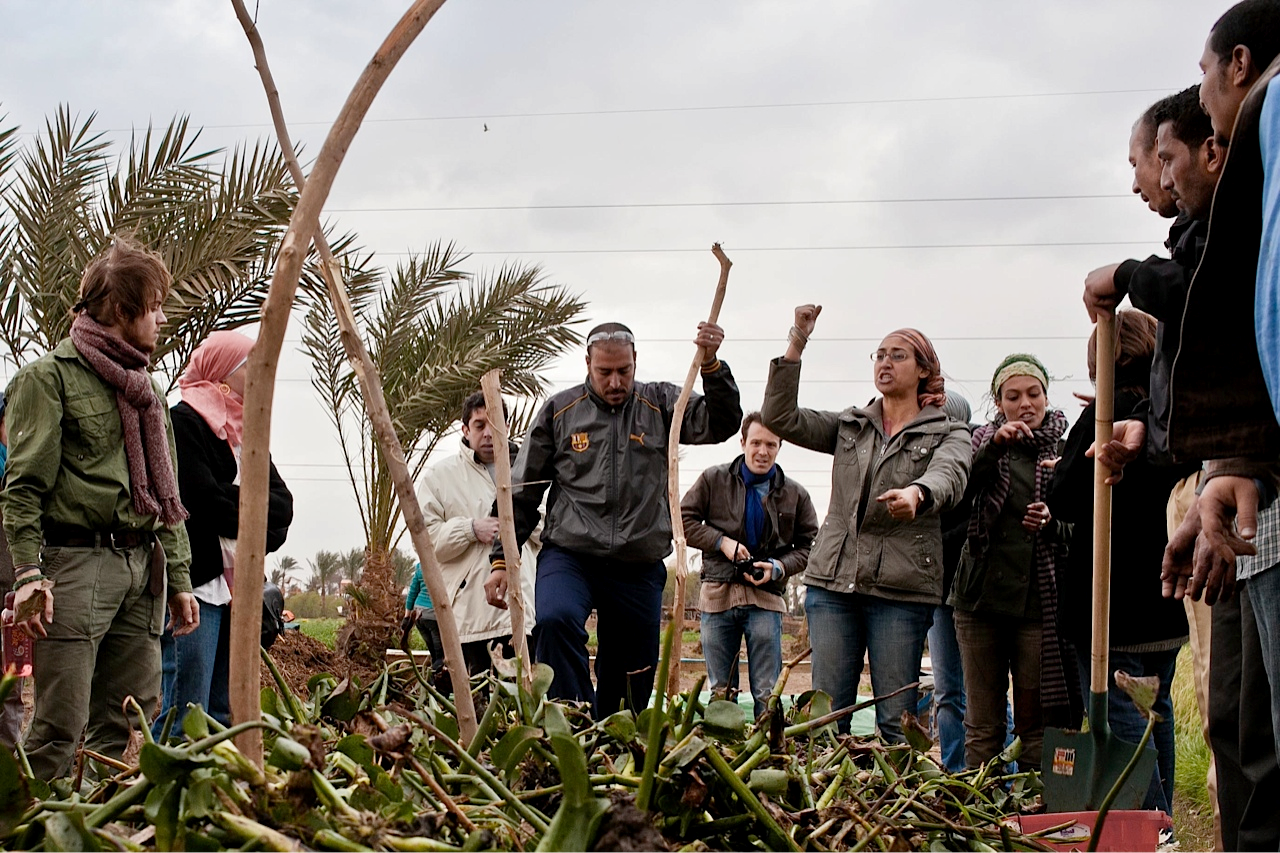
Nawaya aims to make a long-term difference to rural communities by offering alternatives to the practices that have done little to improve the lives of the farmers and quality of the land. By engaging urbanites and farmers simultaneously, Nawaya is setting the stage for cooperative and sustainable growth.
Agriculture in Egypt is going through tough times, poverty is rampant, the younger generation prefers to move to the cities and the conditions in which the farmers grow our food often defy belief. But it is not all bad news. Not long ago a group of Cairenes and farmers from rural Egypt were hard at work on a piece of land in Abu Sir, Sakara. Piles of straw, buckets of water, pitchforks of manure and more where stacked on top of each other to build a large compost heap. Galabeya’s and Uggs intermingled without prejudice in this Composting Workshop hosted by Nawaya – sowing the seed of true sustainability.
Nawaya was given a piece of land in Abu Sir by the Fagnoon Art School and this is where most of their activities to date have taken place. Nawaya has organized several workshops, two on composting and one on micro organisms. “All our workshops are designed to be participatory and during all three there was a strong interest from the local farming community. We are not there to tell the farmers what to do, we are there to help them rediscover ways to enrich the land and support true sustainability, environmentally, economically and socially. During the composting workshop we introduced the Cairo people to bucket composting which can be done on your balcony, and then everyone participated in creating a farm-sized composting heap that will be used on our land” says Adam Molyneux-Berry, one of the founders of Nawaya.
“By engaging the more affluent, eco-conscious Cairenes we create a setting in which we can exchange information,” Molyneux-Berry explains. “The local farming community has a longstanding relationship with Fagnoon, and figure that if they like us, we can’t be that bad.” It did not take the farmers long to become involved and contribute to the workshop. “There is a lot of knowledge in the agricultural communities, but many of the older ways have been replaced by the use of pesticides and chemical fertilizers with have depleted the land. By teaching the city-dwellers how to compost on their balconies and the farmers how to apply this for their own land we are taking the first step in helping them create a sustainable way of life.”
For those with a nice roof or an empty piece of balcony, here is how you can start growing your own lettuce and tomatoes. “We just finished building a rooftop garden,” Molyneux-Berry says. “It is easy actually,” he grins, “you build a box out of palmleaves or the scrap wood you find on most rooftops. Then you line the box with plastic, fill it with homemade compost [this is where your smelly bucket comes in], or buy some, and you are ready to start growing your own food. The complete setup should not cost more than EGP 30 to 40. Added benefits, besides the contribution to food sustainability, are that rooftop gardens cool down buildings, and so reduce electricity bills, and create a social environment. Neighbours start talking to each other, cooperating and supporting each other. And that last part is the core of Nawaya, we want to help to create an environment that sustains itself.”
Plans for the future are plentiful, but the most ambitious to date is the two-year apprenticeship programme. “We are still working on the financial side of things, but the plan is ready,” Molyneux-Berry says. “The two year programme will involve 20 local farmers that will work together on the piece of land in Abu Sir and transform it into rich, viable agricultural land using completely organic and sustainable means. All the techniques used will also be used by the farmers on their own land which will make their crops truly organic without depleting the land.”The farmers will receive the training free of charge; they learn as they apply the techniques on our land and each will be responsible for teaching five other farmers. It does not stop there though, as we will support product development and assist in processing methods so the collective will be able to start selling organic products made out of their crops as well. We aim to create a fully sustainable community by working alongside the local farmers.”
Eventually the land in Abu Sir will feature a demonstration centre, designed and built using sustainable methods and featuring things like effective waste management and water purification. “All workshops we will organize will involve part of the development and building of the centre. The participants, who will come from all parts of society, will learn as they work and in the end the centre will become a reality thanks to the communal effort,” Molyneux-Berry says, “because true sustainability can only be achieved by working together.”




